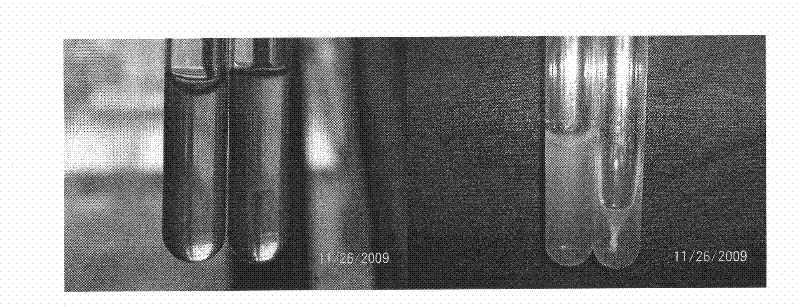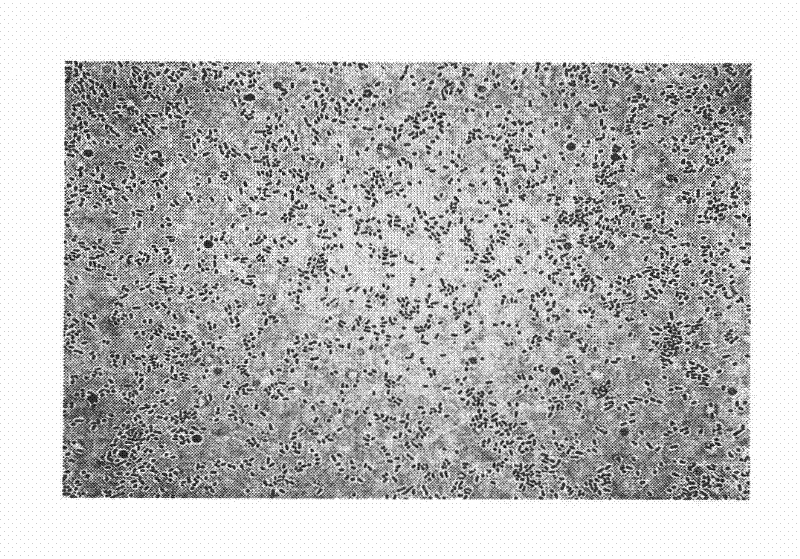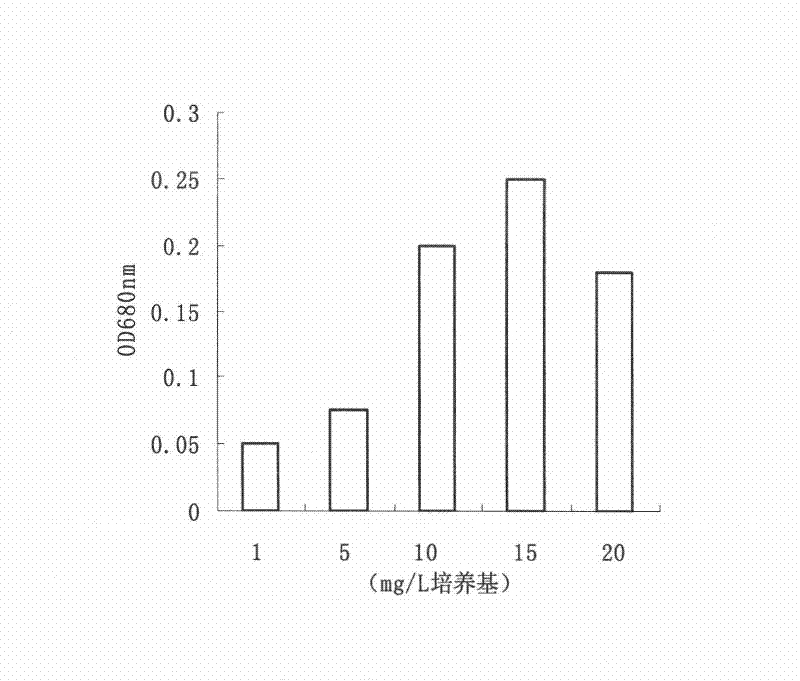A method for isolation and screening of protease-producing oligotrophic bacteria
A technology for separation, screening and production of protease, which is applied in the field of separation and screening of protease-producing strains, and can solve problems such as undiscovered reports on the physiological function of secreted protease.
- Summary
- Abstract
- Description
- Claims
- Application Information
AI Technical Summary
Problems solved by technology
Method used
Image
Examples
Embodiment 1
[0029] Preparation of medium:
[0030] Separation medium: slant / plate medium: (NH 4 ) 2 SO 4 0.5, KH 2 PO 4 1g, MgSO 4 0.2g, NaCl 5g, CaCO 3 5g, glucose (15mg carbon content per liter medium), 11g agar powder (not added to liquid medium); 1000ml distilled water, pH7.0-7.2;
[0031] Primary selection medium: gelatin medium: beef extract 3g, peptone 5g, gelatin 120g, pH7.0-7.2;
[0032] Multiple selection medium / shake flask medium: corn flour 20g, bean cake powder 15g, bran 20g, Na 2 HPO 4 0.3g, NaH 2 PO 4 0.2g, MgSO 4 0.2g, CaCl 2 0.2g, distilled water 1000ml, pH 7-7.2;
[0033] Sampling: Take a soil sample at 0-5cm from the Gurbantunggut Desert in Xinjiang and put it into a sampling bag for later use;
[0034] Isolation of bacterial strains: the sample was spread on the plate of the separation medium (inorganic nitrogen medium) by plate dilution separation method, and cultured at 37°C for 48 hours. After obtaining a single colony, it was purified by streak...
PUM
 Login to View More
Login to View More Abstract
Description
Claims
Application Information
 Login to View More
Login to View More - R&D
- Intellectual Property
- Life Sciences
- Materials
- Tech Scout
- Unparalleled Data Quality
- Higher Quality Content
- 60% Fewer Hallucinations
Browse by: Latest US Patents, China's latest patents, Technical Efficacy Thesaurus, Application Domain, Technology Topic, Popular Technical Reports.
© 2025 PatSnap. All rights reserved.Legal|Privacy policy|Modern Slavery Act Transparency Statement|Sitemap|About US| Contact US: help@patsnap.com



